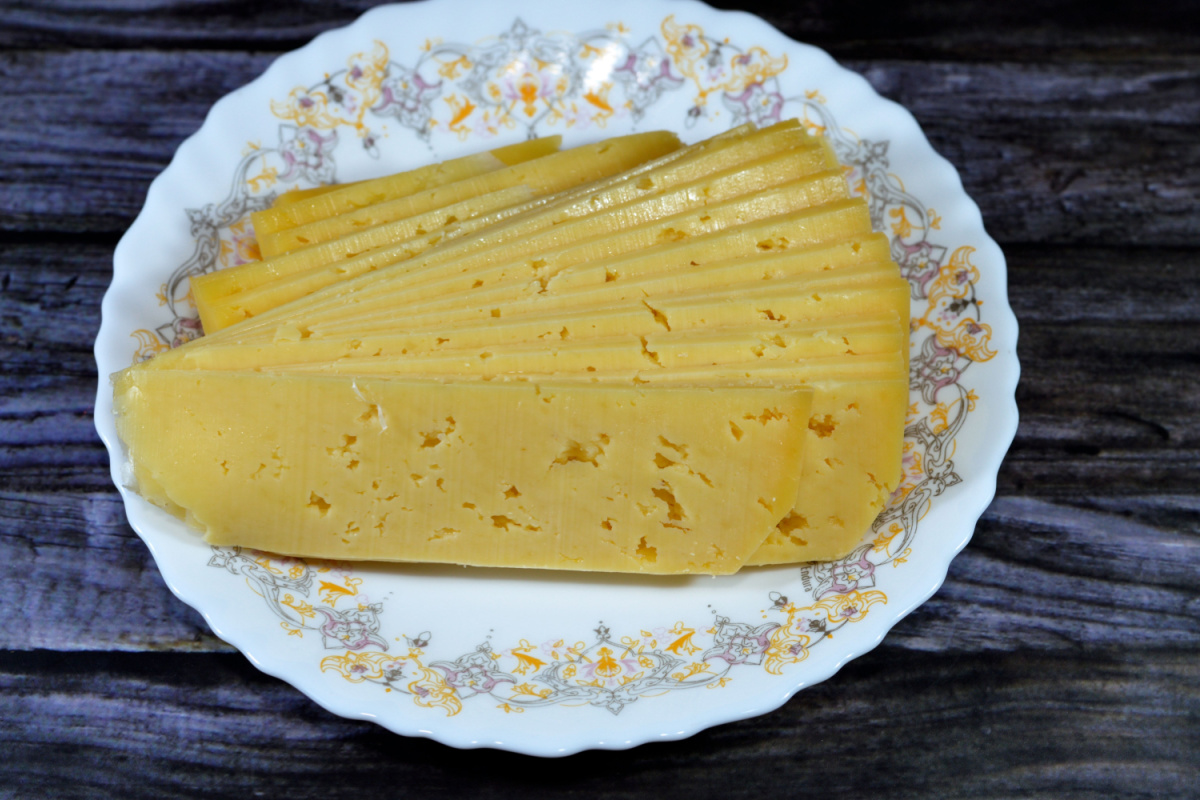Egypt’s Roumi cheese is a beloved staple and a culinary experience that delights the hearts and taste buds of locals and visitors alike.
With its rich flavor and versatile uses, this cheese has become the go-to choice for many, making it one of the most popular cheeses in Egypt. But what exactly makes Roumi so special, and how can you enjoy it in various delicious ways?
The Rise of Roumi Cheese
The consumption of Roumi cheese in Egypt has reached approximately 48,000 tons annually. Despite the high production levels, Egypt still imports about 90 percent of its cheese production inputs. The demand for Roumi cheese is significant, as evidenced by the 27,700 tons of various cheese types exported during the first quarter of 2023.
Roumi cheese boasts a rich history tied to the Mediterranean, with its name stemming from the Arabic word for Roman. Traditionally made from cow’s or buffalo’s milk, Roumi is crafted with careful aging, which enhances its strong flavor and crumbly texture.
The introduction of Roumi cheese to Egypt is often attributed to the Greeks who settled in the country in the late eighteenth century. It gained popularity, particularly in Alexandria, where it was also referred to as Turkish cheese due to the significant number of Turks involved in its production.
The rise in Roumi‘s popularity can be attributed to several factors. Its rich flavor, versatility, and ability to complement a wide range of dishes make it a favorite among home cooks and professional chefs alike.
Additionally, as global culinary trends lean toward authentic, locally-sourced ingredients, Roumi cheese has found its way into both traditional recipes and modern interpretations such as in pizzas.
Production and popularity
Egyptian Roumi cheese is distinguished by its unique production process. Made by curdling cow’s milk with rennet, the cheese undergoes fermentation for a specific period, allowing its flavors to develop.
After being cut into blocks, it is aged for several months, resulting in its signature taste and texture.
According to a preliminary feasibility study on the production of Roumi cheese, this cheese is not only flavorful but also offers several significant health benefits. For instance, it is low in calories while being rich in essential nutrients, making it a healthy addition to meals. Additionally, Roumi cheese provides beneficial Omega-3 fatty acids, which are important for heart health.
Moreover, it serves as a good source of specific proteins and vitamins that are crucial for overall health. Another noteworthy aspect is that Roumi cheese contains probiotic bacteria, which can aid digestion and enhance gut health. This combination of taste and nutrition contributes to its lasting appeal in Egyptian cuisine.

How to Enjoy Roumi Cheese?
One of the simplest and most satisfying ways to enjoy Roumi cheese is to slice it directly from the block. Its rich flavor makes it a delightful snack on its own, perfect for those mid-afternoon cravings.
For a more classic choice, pairing Roumi with fresh, crusty bread is a must. The sharpness of the cheese complements the bread’s softness, creating a harmony that is hard to resist. For an extra twist, a drizzle of olive oil on the bread before adding the cheese enhances the overall experience.
Crumbled Roumi cheese can also elevate salads, adding a burst of flavor to any dish. Whether mixed with fresh greens, tomatoes, and cucumbers or tossed into a grain salad, it provides a savory punch that transforms ordinary salads into delightful meals.
For those seeking a more adventurous flavor experience, grilling Roumi cheese enhances its taste and creates a deliciously crispy exterior. Serve it as part of a larger dish, like a grilled vegetable platter or as a topping for burgers.
Egyptian Roumi cheese is highly multifaceted in the kitchen. It can be enjoyed on its own, sliced with bread or crackers, melted as a pizza topping, or added to sandwiches for extra flavor.
Roumi cheese is more than just a popular cheese in Egypt; it’s a symbol of culinary heritage and innovation. Its versatility allows it to shine in various dishes, making it a beloved ingredient for both everyday meals and special occasions.




Comments (0)